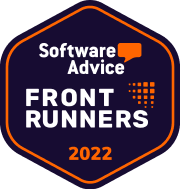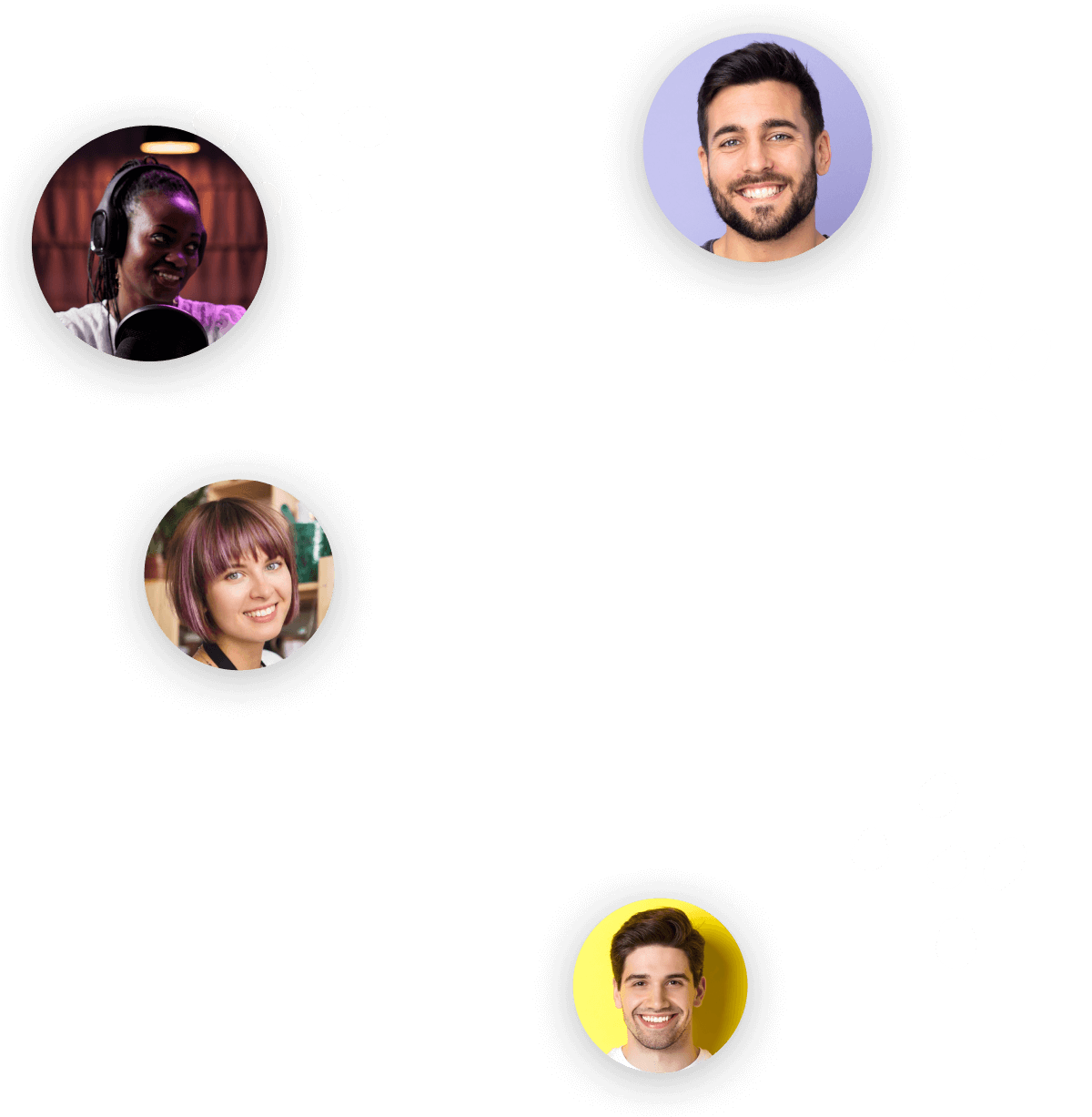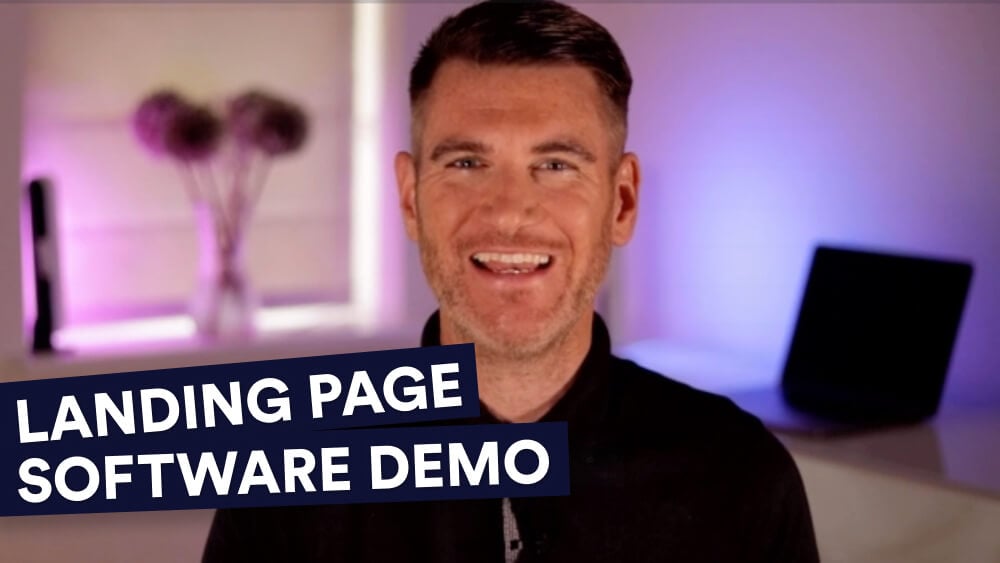Maximise Your Lead & Sales Data With The Webhooks Rules Engine

David Frosdick
Last Updated: January 17, 2023
The Rules engine is our latest innovation that helps you better connect your OptimizePress site (and the actions visitors take on your pages) with the other software tools and systems you use to run your business.

The Rules engine is our latest innovation that helps you better connect your OptimizePress site (and the actions visitors take on your pages) with the other software tools and systems you use to run your business.
We already have webhook integrations across various parts of our platform including inside Opt-in forms as an integration method, and inside Checkouts integration rules.
This new feature goes deeper in allowing you to create multiple rules per event (to send data to different locations) and also expands upon the data set we send to your external webhooks.
A Webhook is simply a way we pass data to other platforms, for example your CRM, email marketing list or a spreadsheet you use to track finances.
Those first few paragraphs might sound technical but we're going to break it down in this post to help you see the benefits and figure out if you need this (yet) or see a potential use for this later as your business grows.
Rules Engine Walkthrough
Here's a quick walkthrough explaining what the rules engine does and some examples of what data can be pulled from your site.
This videos shows:
Now you've seen how it works it's time go a little deeper into what data you can grab from your site and pass to other places.
Where to find it
The new rules engine is accessed via the main OptimizePress Dashboard > Rules Engine.
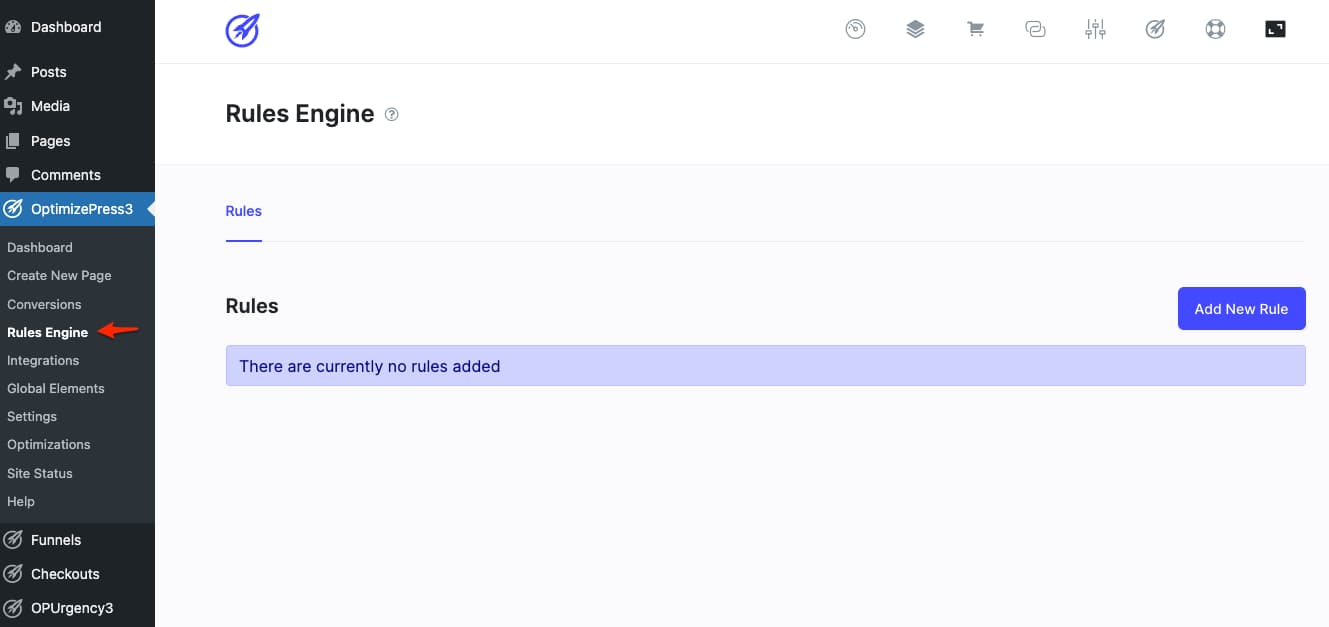
What gets triggered?
To give you an idea of the data that can be tracked using this rules engine. Here's a list of some of the top events that are sent through a webhook.
Each event is what triggers the Rules Engine to work.
If you are already familiar with webhooks and know what you're looking for, you can see the complete list here.
page_id
This is the WordPress page number seen in the URL:
https://www.optimizepress.com/wp-admin/post.php?post=178973&action=edit
page_url
The URL of the page the event took place.
integration
The name of the integration you are using like "Mailchimp" or "ConvertKit" some site owners use multiple integrations.
list_id
The name of your list/form (if it exists).
tag_ids
If you use Tagging in your email platform.
Checkouts Data
Here's just some of the data sent in checkouts. The items in bold are what's sent through the webhook.
E.G when it says first_name - The first name is being sent and so on.
"action": "string",
"unique_event_id": "string",
"first_name": "if checkout form does not have first name field, email will be used - string",
"last_name": "string",
"company_name": "string",
"email": "string",
"phone_number": "string",
"detected_country": "string",
"city": "string",
"state_region": "string",
"zip": "string",
"vat": "string",
"product_id": "integer",
"order_is_upsell": "is this order an upsell? - boolean",
"order_number": "integer",
"order_total": "human readable as a decimal number - string",
"payment_method": "string",
And there's a lot more. See this image showing more events.
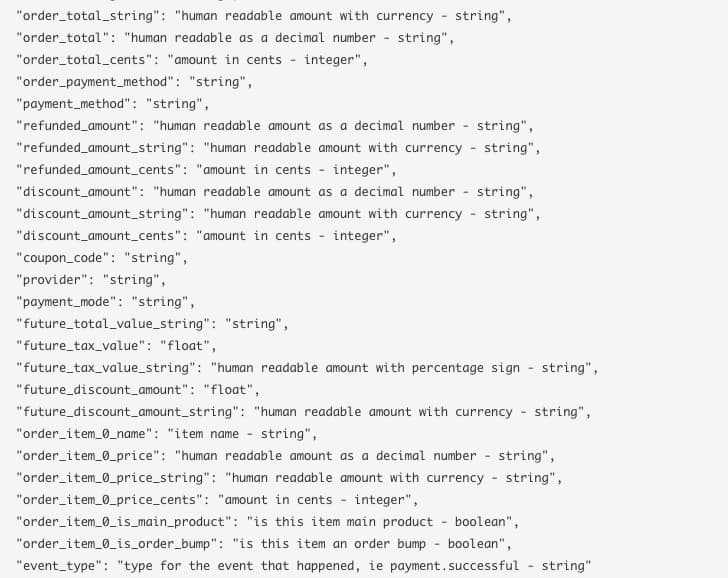
See the complete list of events here.
How it works
With the Rules Engine, you can send data to webhooks based on events happening across any pages on your OptimizePress site.
We call these Triggers Events.
We have made a number of specific Trigger Events available, each of these will trigger whenever that event happens anywhere on your OptimizePress pages.
We'll break down each of these Trigger Events below.
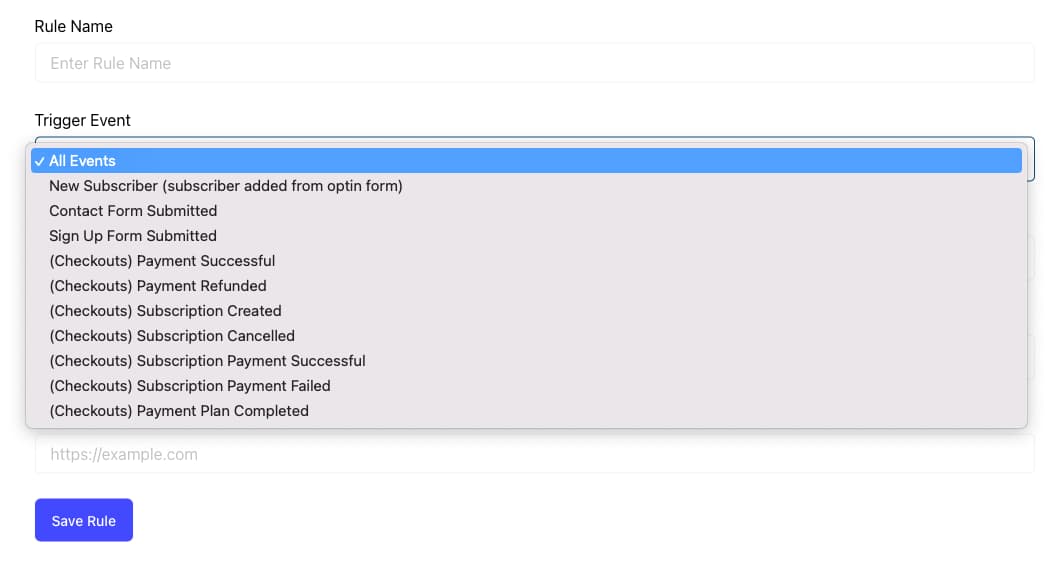
All Events
This webhook will trigger on all events (any of those listed below). Any data collected that is available in the webhook system will be sent.
New Subscriber
This will trigger whenever an opt-in form on your site is completed (as long as it's an OptimizePress opt-in form). Data will still be sent to your integration service connected with the opt-in form.
Contact Form Submitted
This webhook will be triggered when you submit any contact form on your OptimizePress site. This allows you to send data from any contact forms, support forms or anything else you're using the forms for.
Sign Up Form Submitted
Send data collected on your Sign up form, which is part of the login/registration form and allows you to create new users on your WordPress site.
(Checkouts) Successful Payment
Sends all the data of successful payment like order details, product details, order number, amounts and more.
(Checkouts) Payment Refunded
Someone gets refunded. Fire the data to your CRM or spreadsheet.
(Checkouts) Subscription Created
New user signs up to a subscription. Great! Put all the details into your CRM and fire off new emails or update sequences.
(Checkouts) Subscription Cancelled
A subscription plan got cancelled. Alert a team member to reach out to the customer.
(Checkouts) Subscription Payment Successful
Send the data to your CRM and thank the customer via automated trigger event.
(Checkouts) Subscription Payment Failed
Oops! Time to alert your team or automatically send a polite notice via email.
(Checkouts) Payment Plan Completed
Great! Notify the customer that the payment plan has completed and no other billing will occur—update customer details in your CRM.
What can you do with this feature?
Unless you're a developer, generally, you'll want to use a third-party webhooks service that does the technical work of making apps talk to each other and pass the data.
Services to consider:
Event Trigger ideas
Here are some ideas for using our new Rules Engine.
How to create a new rule
It's quick to create new rules.
From the OptimizePress Dashboard click Rules Engine then Add New Rule.

In the window enter in some details about your rule.
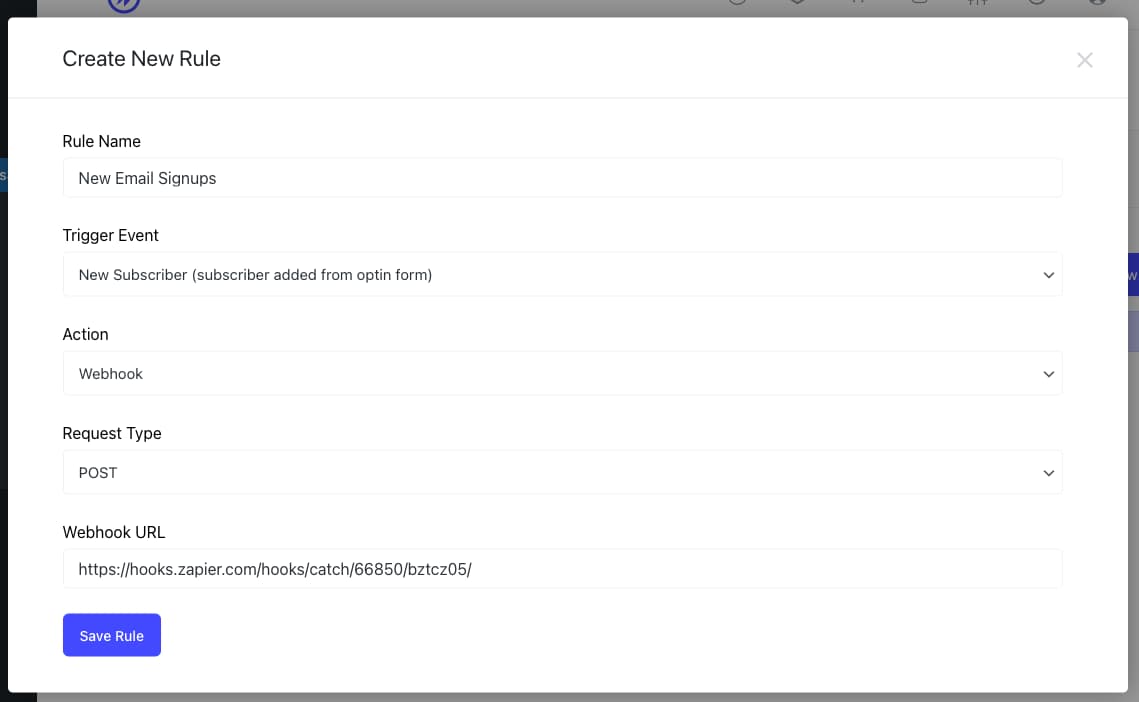
As shown in the video above you need to create your webhook URL and add that to the rule.
If you using a spreadsheet we recommend downloading our sample spreadsheet from this help article.
Expansion of Checkouts Integration Rules
As part of our updates to the rules and webhooks systems inside OptimizePress, we've also expanded the data set sent by checkouts integration rules webhooks.
You will now see an option to include webhooks for product rules in OptimizeCheckouts.
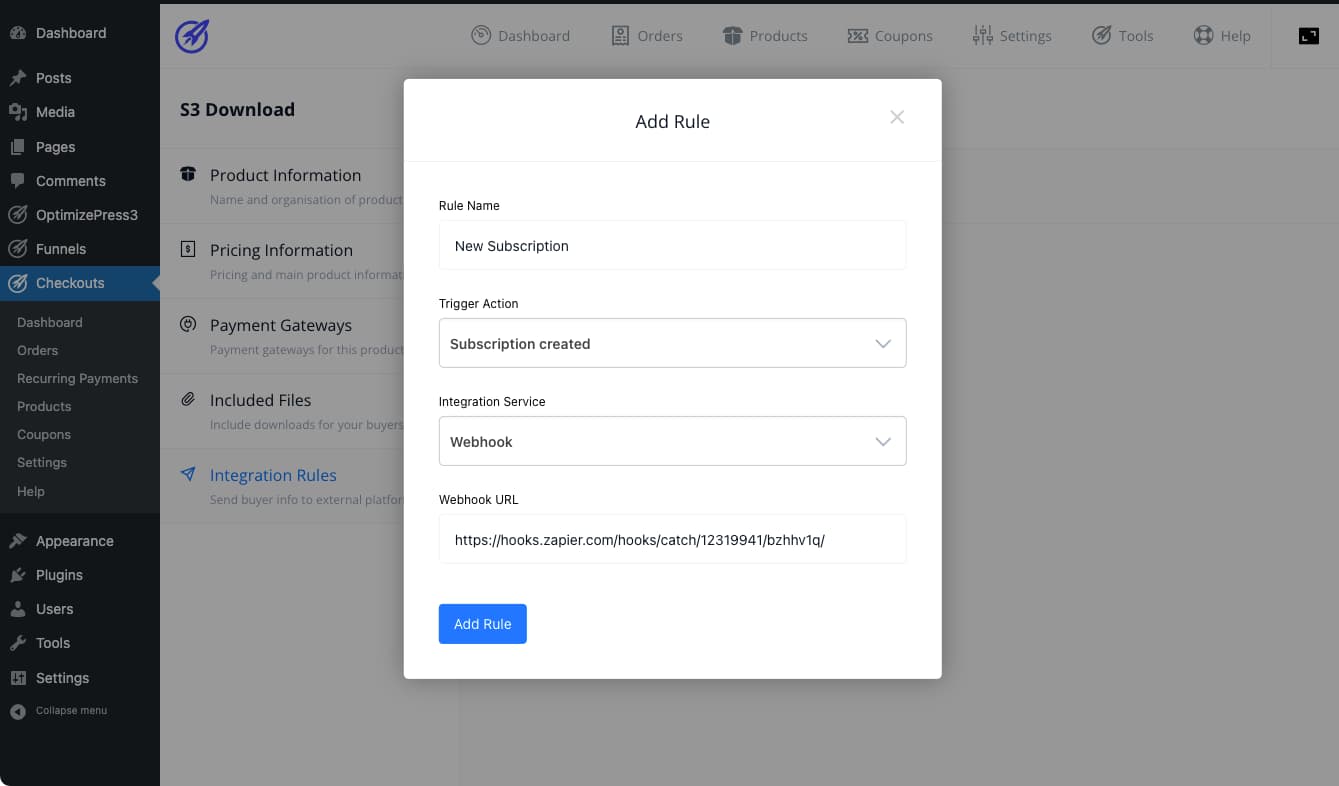
This webhook integration now sends all the same information available in the Rules Engine, so you can better integrate external systems with your individual product webhooks.
These work in the same way as the Rules Engine webhooks but are obviously only triggered upon events related to the specific product you are adding the integration rule for.
How will you use it?
The new Rules Engine opens up many doors for how you handle customer data and where you send it.
Once you start growing your businsess you will see the advantage of being able to pass data to different services.
Please share below how you will use this feature and we can add your suggestion to the list of ideas.
Want to convert more leads & sales?
OptimizeUniversity gives you the latest marketing training courses, strategies & tactics to grow your business fast.

